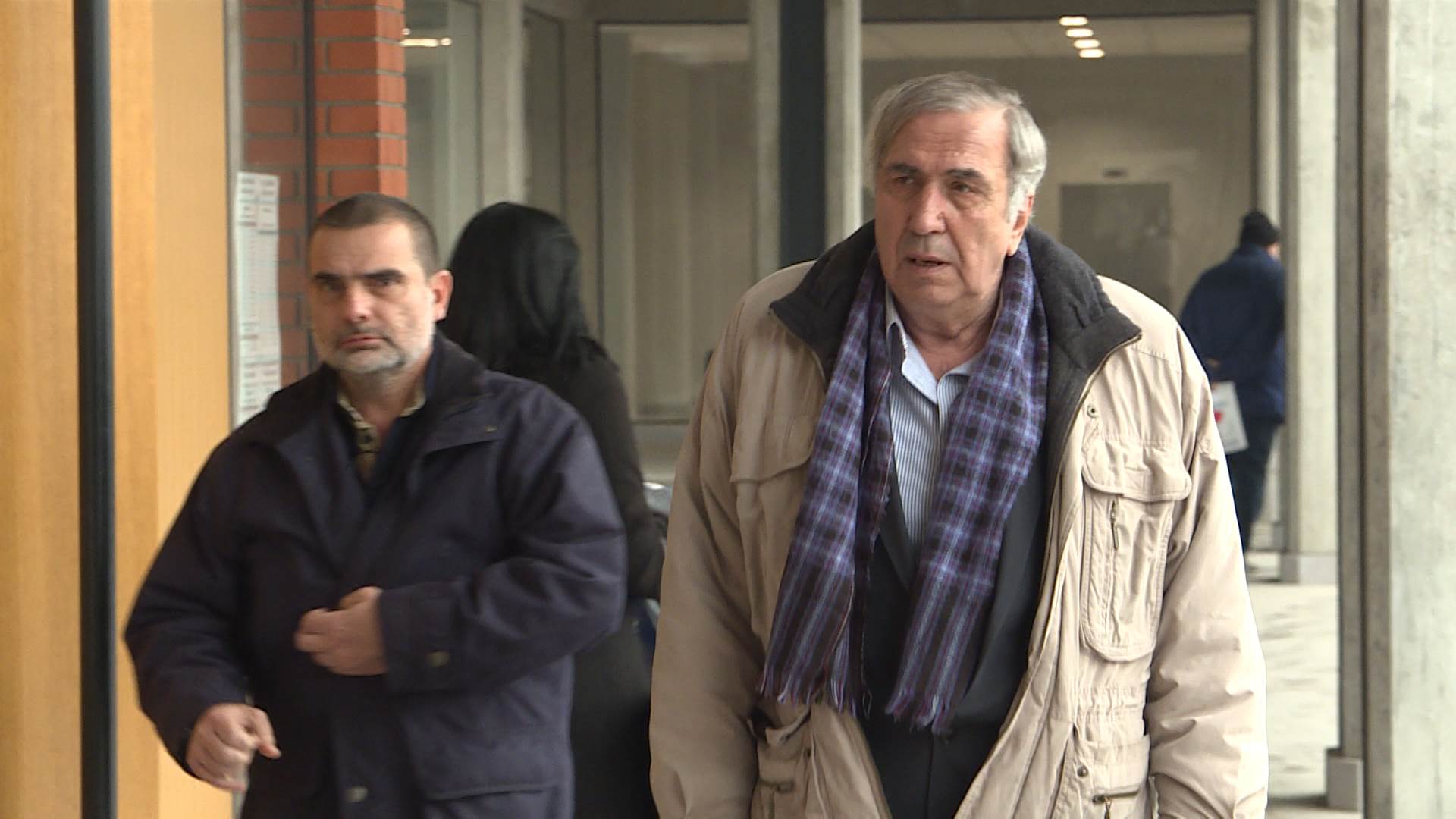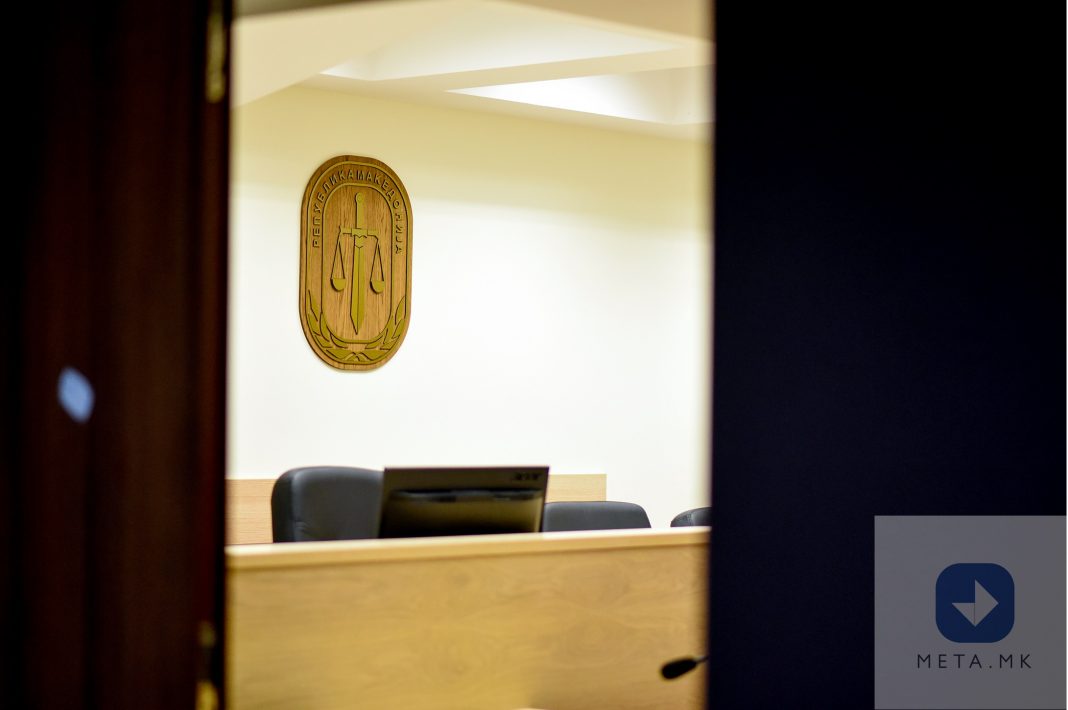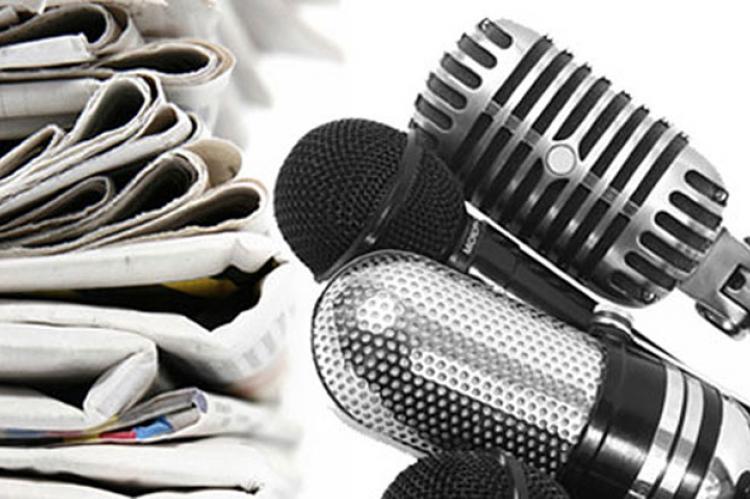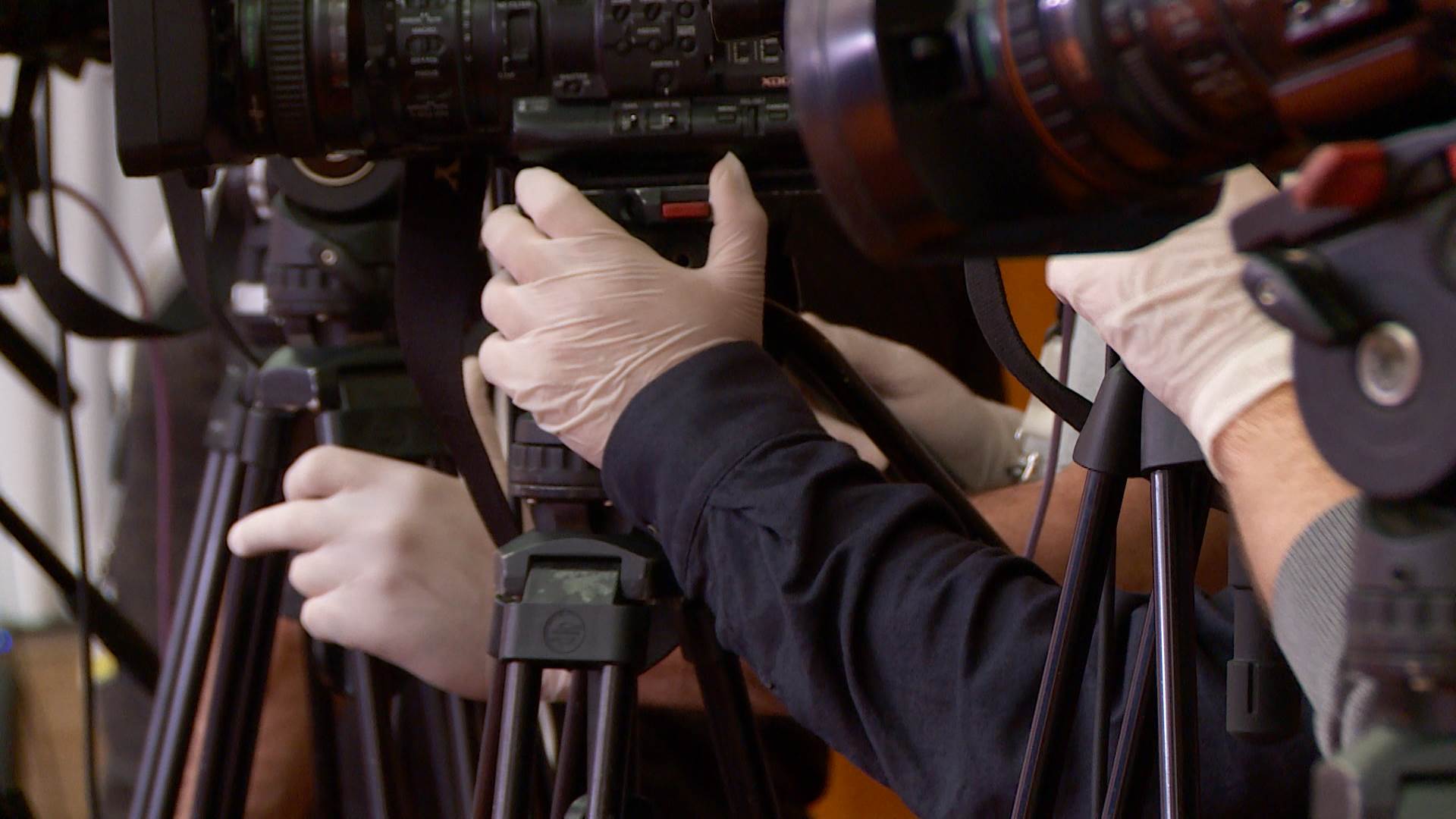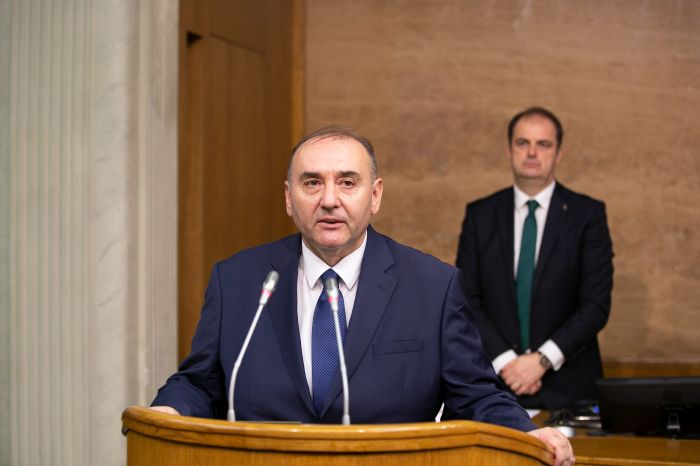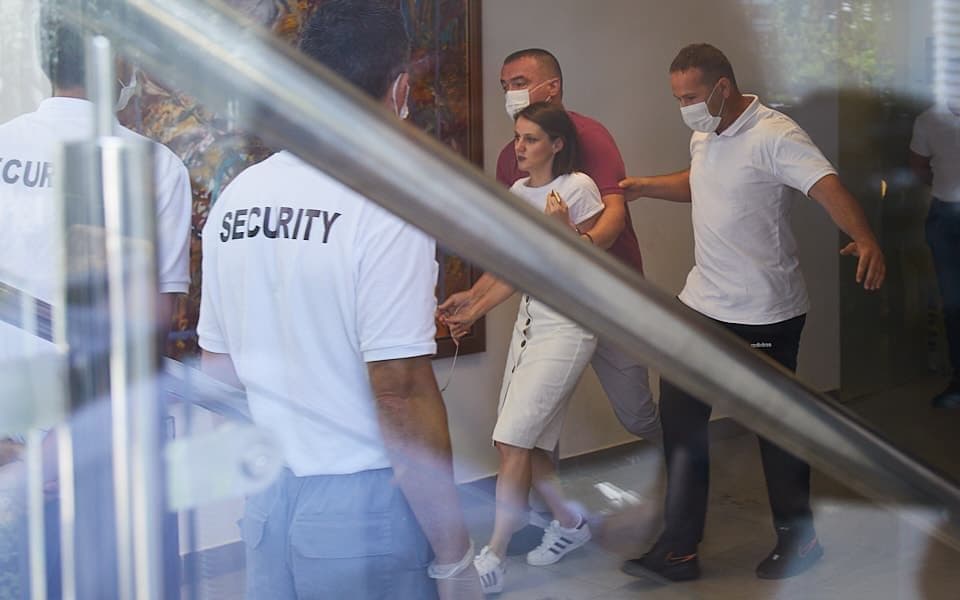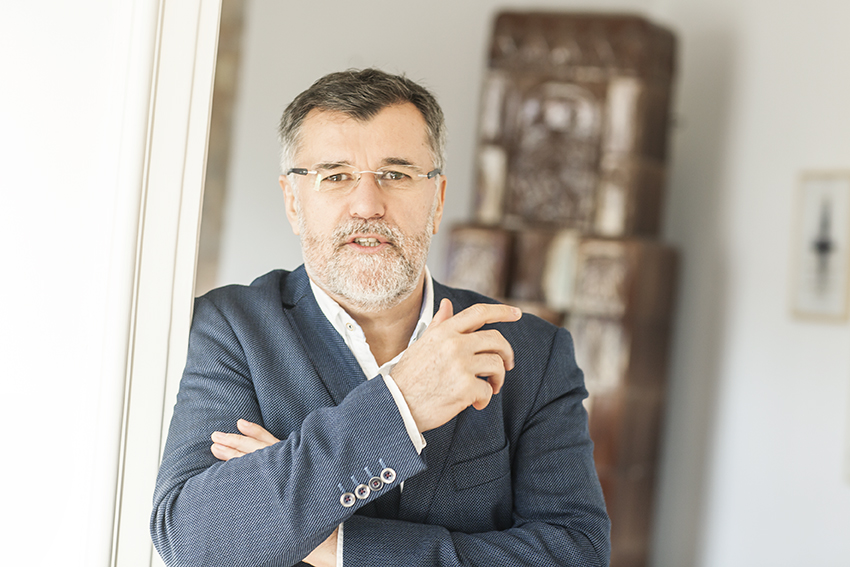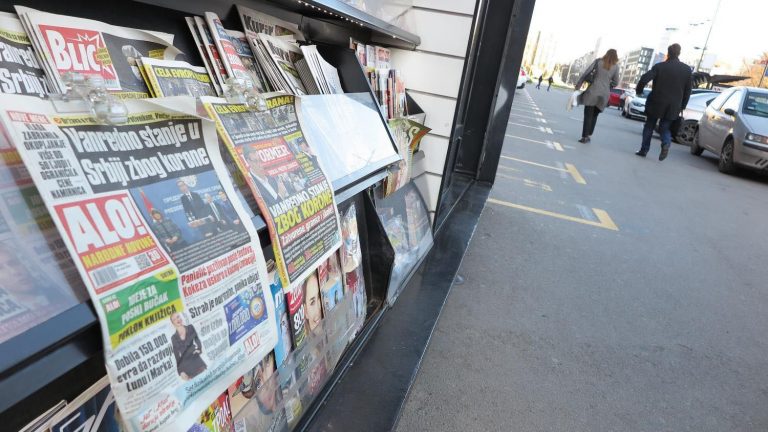Opting for a retrial and a new evidentiary procedure would be a paradox – to prove what has already been proven. In fact, the point would be for all first-instance convicts to remain at large, Veran Matic, Chairman of the Commission for investigating the killings of journalists, told Cenzolovka, reiterating that the deep state governed by elements of the secret services is very strong.
The first, and so far the only, verdict for the murder of a journalist in Serbia is attempted to be overturned before the Court of Appeals by the lawyers of the convicts and the Deputy Prosecutor for organized crime. They appealed the decision of the Organized Crime Department of the High Court in Belgrade from April 2019, which sentenced four members of the State Security Department to a total of 100 years in prison for the murder of journalist Slavko Curuvija on April 11, 1999.
If the verdict against the four convicted for the murder of Ćuruvija falls, what message will that be to the families of the victims, the freedom and security of journalists, but also to the whole society?
The decision is on the Court of Appeals. Last weekend, the Slavko Ćuruvija Foundation expressed a clear expectation from the Appellate to confirm the verdict and for the murderers of Slavko Ćuruvija to finally be in prison.
Due to the role he played as the Chairman of the Commission for investigating the killings of journalists in passing a conviction during five years of difficult trial, we asked Veran Matic what he expects from the Court of Appeals, which will discuss this case on July 7, 8 and 9.
Veran Matić: The Trial Chamber of the Court of Appeals had enough time to carefully study the evidentiary procedure during the trial and to study the verdict with adequate care. I consider that during the first-instance proceedings, solid evidence and facts were presented which undoubtedly indicate the guilt of the accused.
I think that deciding on a retrial and a new evidentiary procedure would be a paradox – to prove what has already been proven, and in fact, that it makes sense for everyone to remain at large and for the court decision to become irrelevant whenever it is made.
For that reason, I believe that the Court of Appeals will confirm the first-instance verdict condemning the perpetrators and organizers of the murder of Slavko Ćuruvija, and those who are alive and whom the prosecutor accused.
I also expect that the measure of house arrest will be abolished and replaced by a measure adequate for a convicted person under this verdict, which would mean that convicted persons return to detention units, and not wait for „execution“ of their sentence and spend time at home for commiting such a serious crime.
Cenzolovka: You believed that the prosecutor would ask for the maximum sentences and immediate detention of Milan Radonjić and Ratko Romić in the appeal to the Court of Appeals, and he asked for the verdict to be annulled. Do you believe that the Prosecution has the strength to achieve a higher degree of satisfaction of justice, to prove who pulled a trigger and who ordered this murder?
Matic: I have no reason at this time to doubt the objectivity of the Trial Chamber of the Court of Appeals. I see the decision in which the Court of Appeals would return the procedure to the beginning as dangerous. I am afraid that in that way the trial so far would turn into a farce – a trial for the sake of a trial.
The first instance court accepted that Rade Markovic requested, and Radonjic ordered the murder.
I often (during the trial) had the impression that the murdered Curuvija and his family members, who insisted on resolving the case, are on trial, along with the Commission and members of the Working Group that worked on the investigation of this crime in an attempt to establish justice.
Guided by the experience from the first instance procedure so far, I am worried that a retrial would actually be a mere prolongation of this procedure. I will remind you that in this procedure, there were numerous obstructions and pressures to separate crucial evidence from the overall evidence.
It clearly shows that there is still a great influence of people from the time when Slavko Ćuruvija was killed, with a strong need to devalue and make no sense of this case, and thus to release those convicted in the first instance for this crime.
I was extremely surprised by the prosecutor’s appeal, requesting the retrial. My opinion is that this is the worst option.
I will not claim that his appeal is not legally substantiated, I will not pretend to be a greater lawyer than him, but I do not understand the legal logic of the prosecutor. He asked for a conviction, he got a conviction, and then suddenly he asks for the entire trial to be annulled and for everything to start from the beginning after twenty years. That is not justice. Delayed justice is denied justice.
I think that there were other possibilities – there was no reason to ask for a retrial of the principals, organizers and executors and to prove again what was already proven by the first instance verdict. The Prosecutor could have requested that the verdict be partially upheld or that it be amended so that the Appellate Panel could establish a new factual situation that corresponds to the indictment and the evidence presented. But for those who are convicted, their guilt has been already proven.
The Trial Chamber of the Court of Appeals does not have to overturn the first instance verdict. It has been studying the case for a long time, three days of hearing the appeals are planned, and I believe that, taking into account the allegations and arguments from the prosecutor’s appeal, it will reach an adequate verdict.
The verdict is the first step in revealing the full truth
Cenzolovka: Is the satisfaction with the verdict, despite the fact that both the killer and the orderer remained unknown, an acknowledgment of impotence and acceptance of the reality that our judicial system is weak and the secret services are strong and full of criminals?
Matic: This verdict is something we could achieve under the given circumstances after so much time of obstruction of the investigation, and then during the trial. It happens rarely in the world that the head of the intelligence service has been accused and sentenced (for the time being, by the first instance verdict). It is rare for the murders of journalists to be exposed (even in 90% of cases, murderers and perpetrators are not detected). It is even less possible for anything to happen after so much time since the murder had passed.
The establishment of the Commission for investigating the killings of journalists, with the involvement of the media community in achieving justice, was unique in the world. That is why I am very pleased with this result.
I see the decision in which the Court of Appeals would return the procedure to the beginning as dangerous. I am afraid that in that way, the trial so far would turn into a farce – a trial for the sake of a trial.
I see this verdict as a basic framework of justice in this case, and as a first step. It is certain that this process will continue, now before the Appeal and later, probably through some more complaints of some of the actors. And that is the second phase of the fight for justice, for the truth about the murder of our colleague Slavko Ćuruvija.
If we do not continue to work on this case, on confirming the verdict, on revealing what has not been revealed so far when it comes to this crime, if we do not work on discovering the mechanisms of obstruction of the investigation… we risk losing what we have gained so far , because the judicial system is also weak, and I get the impression that it is getting weaker, and especially insensitive to older cases, criminals are perceived to be treated as heroes, the deep state governed by elements of the secret services is very strong. And all this is not a problem related to solving this case, but it affects the destiny of the entire society.
That is why this case is a symbol, a case presenting an indicator, and a case that we must not give up.
IN ORDER TO SURVIVE, IT IS IMPORTANT TO RESET QUICKLY
Cenzolovka: How do you assess the attitude or approach of the media and the journalistic community towards trials in which journalists are victims?
Matic: Our profession is quite radically divided, and that is highly reflected when it comes to attacks on journalists, trials, etc.
Very often, there is a great urge to defend the rights of journalists of our own political orientation, but there is very little readiness to jump in defense of journalists who are not politically close to our hearts.
We often have situations where a lot of noise is being raised, e.g. with the OSCE and similar international organizations, due to an anonymous tweet insulting a journalist we love, but we don’t have time to come to Jagodina and support the family of a journalist who was killed for investigative journalism before investigative journalism became so popular and almost the only important thing donor consider worth fighting for.
There are numerous examples of such inconsistencies, which are embedded errors in the system of defense of journalists, prevention, failure before the institutions of the system, failure to advocate and thus improve the position of journalists.
When we called on other newsrooms to continue with pursuing the stories related to the killing of my colleague Jovanović, only Cenzolovka and Insider responded, few representatives of the association came to the trials, only one camera at the last hearing…
Once upon a time, we from B92 reacted to every repression and ban with at least twice as much force when we returned on the air, with a greater presence of programs due to which we were constantly under repression. I think it is important to always apply that recipe.
Now I get the impression that after every repression, impunity, there are fewer and fewer of us, less and less capacity, solidarity and professionalism.
An urgent reset would be very important. That we may all survive.
The first step could be to unite disunited associations, first in terms of what endangers the profession the most – safety, conquering freedoms and trade union rights of journalists.
Ethics is needed at the same level, which shouldn’t have diverse standards, but must be unique instead, and there must be one ethical council in the media, i.e. the competence of the Press Council should be extended to all media.
I am not substituting theses in the sense that we are to blame for the situation we are in, but I am consistently answering the question and talking about the way in which we can influence our position with maximum effects. If we are not united, the pressure of international institutions, EU conditions, introduction of sanctions, etc. will not help us.
The media and media associations cannot become political parties and win freedom and improve safety through a parliamentary battle. However, they can jointly find protection mechanisms, create innovative business models, thus strengthening the community in general.
Cenzolovka: In your opinion, what would be the real dangers of repeating the trial for the murder of Slavko Ćuruvija before the High Court if the Appellate Court makes such a decision?
Matic: During the trial, we had a lot of inexplicable decisions of the Trial Chamber, we did not get adequate cooperation from the representatives of the services who could provide more quality information. It was as if the „service“ had been guarded very carefully.
I recently read in a book by State Security Agency’s Deputy Director at the time of the assassination of Prime Minister Djindjic, Goran Zivaljevic, who, for example, openly defends members of the Ninth Division of the DB (Secret Surveillance Unit) – with the thesis that they were just doing their job. He even goes as far as to discuss a speculation that they would do it even if someone ordered them to follow Mira Markovic, explaining what they would do in that particular case.
Moreover, he did not bother to analyze the testimonies of all those who accompanied Slavko Ćuruvija 48 hours before the murder, including a tour of the murder scene. We have not received any new information that would help further clarify this murder, although there are very clear indications that someone who was the last to withdraw from the street from the surveillance task had to see who entered the entrance, killed Slavko and simply left the crime scene…
This verdict is what could have been achieved under the given circumstances after so much time of obstruction of the investigation, and then during the trial. It is rare in the world that the head of the intelligence service is accused and sentenced … It is rare for the murders of journalists to be exposed.
In praising the members of the Ninth Department, Zivaljevic says „that they all could hardly wait to officially disclose what they know about this problematic monitoring of people from 1999“ … „I am convinced that they did not keep silent about anything, and why would they do that?”
My impression during the trial was that they kept silent. That they „forgot“ everything, and in fact, the solidarity of all participants was evident throughout the trial: the Intelligence Service Chief, Rade Markovic, the accused executors, defense lawyers, witnesses…
I often had the impression that the murdered Ćuruvija, his family members, who insisted on solving the case, the Commission and the members of the Working Group, which worked on the investigation of this crime, were being tried in an attempt to establish justice.
We all remember the attempt to reach a verdict by the decisions of the Trial Chamber, even before the end of the trial, by removing key evidence from the trial itself, twice, which the Appellate returned to the trial by its decisions.
We can imagine how many new cases of amnesia, how many amended statements and testimonies will be, in case of process returning to its beginning. In the case of the trial of the President of the Municipality of Grocka Simonović and others for setting fire to the house of journalist Milan Jovanović, we saw that, despite the confession of the actors, delaying the trial created space for influencing witnesses and perpetrators and, of course, everyone changed their statements.
At the same time, Romić and Radonjić are under house arrest, but with much more freedom, not to mention Kurak. All this time, there was no targeted search for him, although there were information about his whereabouts.
I think that otping for a retrial and a new evidentiary procedure would be a paradox – to prove what has already been proven, and in fact, that it makes sense for everyone to remain at large and for the court decision to become irrelevant, whenever it is made.
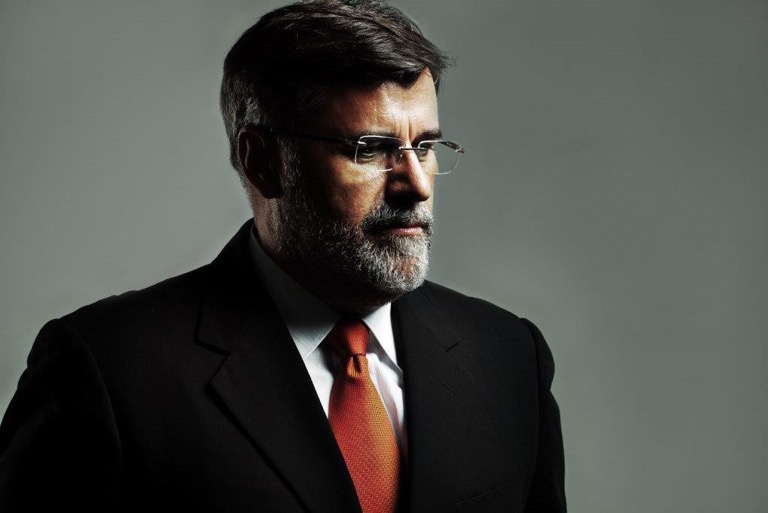
Veran Matić (foto: Nebojša Babić)
Journalists lose if there is no solidarity
Cenzolovka: Two years ago, during the first-instance trial of the murderers of Slavko Ćuruvija, you accused the Trial Chamber of obstructing the procedure. Because of that, you were jointly attacked by judges and lawyers, and the Belgrade Bar Association even demanded the introduction of imprisonment and fines for journalists who comment on the court proceedings. According to your opinion, to what extent is public interest and pressure important in trials in which journalists are victims?
Matic: I deeply regret the fact that so few of our colleagues followed the trial of those accused of the murder of Slavko Curuvija. This was a chance to show solidarity, to learn something, to gain experience. I am sorry that the associations did not have professional monitoring of the trial itself, including the distribution of information globally, in a systemic manner, because this was a trial that was precedent, stirring an international interest.
I regret that our media did not take more time to follow this trial in depth, analytically and investigatively. I’m also sorry that I didn’t see journalism students, their professors in the audience … this was a unique opportunity for them to learn something new, a big lecture.
I do not understand the legal logic of the prosecutor. He asked for a conviction, he got a conviction, and then suddenly he asks for the entire trial to be annulled and for everything to start from the beginning after twenty years. That is not justice.
I have the same bitter impression following some other cases, trials … where we should witness specific support from the media community.
At the last hearing, the victims, colleague Milan and his wife, were again victimized by the arsonists from Grocka. It was extremely important to them that I was present at the trial, that we could talk, hear some advice, words of comfort, solidarity. To see that they are not alone.
And in general, I think that many political and court decisions are made when assessing „public opinion“, public reactions, etc., and if there is no clear position of the media community, showing support constantly, clearly and visibly, then the other side will prevail in reaching decisions.
Cenzolovka: At the trial for setting fire to the house of journalist Milan Jovanović, we recently witnessed the classic victimization of victims, where the judge allows the defendants’ lawyers to humiliate the victim with questions. What are your experiences from trial monitoring?
Matic: My impression is that in most cases, defense lawyers rule the courtrooms. We are under the impression that no one could do anything to them. Zora Dobricanin seems to be regularly late for trials and has experienced no sanctions for that oversight. It is as if nothing has happened, and the trial is late, with constant obstructions from lawyers whose sentences are meaningless when they are there, and they usually are not present.
At the trial of Simonović, one gets the impression that the bench on which the prosecutor and the injured party’s lawyer are sitting are in a completely defensive situation. Defense attorneys act as a team, uniquely, they radiate assuredness – as if they know the outcome in advance… A judge often looks like someone who cares more about the tricks of defense attorneys than about achieving justice, protection of victims…
Delayed justice is denied justice
I always draw a parallel with the position of women who have been raped and who have to participate in legal proceedings, which look like new violence. With that in mind, it seems understandable that victims, even when they have clean cases, avoid resorting to justice. That is a frightful fact for the rule of law.
Not to mention the institution of the „protected witness“, who in various cases, when it comes to war crimes, not only were not protected, but become classic victims of those who had to guard them.
I know that the price of independence, conscientiousness in performing the profession is consistently very high, but each of us has that in mind when he starts doing his job – journalistic or judicial, prosecutorial. There is no rule of law if there is no consistent aspiration for justice to happen. There is no journalism without the consistent role of watchdog of public interest at any cost.
Unfortunately, just as in our profession, we have more and more journalists protectors of the ruling political establishment instead of watchdogs of the public interest, in the judiciary, we have a tendency to protect the interests of the ruling oligarchy and other powerful people, not justice.
Nothing is solved without public pressure
Cenzolovka: What do you expect from judges, and what from prosecutors when it comes to murder trials and attempted murders of journalists, and to what extent do they meet your expectations?
Matic: All murders with political motivation must have their epilogue. Unfortunately, I am under the impression that each of these murders, e.g. from the 1990s – from police generals, numerous police inspectors, the Minister of Defense, the General Manager of JAT, a high-ranking State Security officer Gavrilovic, were deliberately left without prosecution. As well as numerous war crimes cases. The same would have happened with the case of the murder of Slavko Ćuruvija if there had not been strong pressure from journalists and active participation through the Commission for investigating the killings of journalists. Judges and prosecutors also belong to the segment of society which is a strong indicator of the state the society is in. And those involved in investigating corruption or prosecuting ordered murders with a political background or war crimes are most often under police protection.
That is why it is necessary to pay special attention to prevention, when it comes to the safety of journalists, prosecutors, judges, police officers… Instead of encouragement, we have a gradual withdrawal of all these professions from the jobs that they should perform in the most dedicated way possible, but there is no social consensus, even in the government itself, on the uncompromising prosecution of all those who break the law or pose a threat to security, and by this inaction, we get a practical collapse of the justice system.
If we do not continue to work on this case, on confirming the verdict, on discovering what has not been revealed so far, if we do not work on discovering the mechanisms of obstruction of the investigation, we risk losing what we have gained so far. The deep state governed by elements of the secret services is very strong.
Cenzolovka: How do you consider the position of the Prosecutor’s Office for Organized Crime that it cannot take over the investigation into the murder of journalist Milan Pantić, as proposed by the Commission for investigating the killings of journalists?
Matic: I get the impression that there is no political will in solving the case of the murder of Milan Pantic, as there was in the case of solving the murder of Slavko Curuvija. I can’t understand the reasons for that. Resolving this case is complex, difficult, but that is why the Special Prosecutor’s Office was established.
I don’t know whether taking over this case by the Prosecutor’s Office for Organized Crime would solve the case, but I could testify that everything was done. This is my impression that it is halfway there, that the Working Group at the Commission has done a great job in the investigation, but it has reached a maximum and now it is necessary to add new directions that can be opened by the Special Prosecutor’s Office.
Cenzolovka: What, in your opinion, are the main causes of court inefficiency?
Matić: Scheduling hearings every month in just two or three days, with the reason that there is not enough capacity in terms of space, was the most common explanation for the slow progress of the process. And that is something that can be solved. I don’t understand why it is not resolved. In order for justice to be served, it must happen in a short period of time. None of the evidence presented during the hearing required any special conditions. I didn’t often understand „eating time“ in presenting evidence – a lot of idleness, questions that reveal nothing, answers that present clear obstruction, etc.
Over time, from a strong determination to make a final verdict happen effectively of that inviolably expressed desire, relativization prevails very quickly, and the defense machinery commence its work, turning in time that inviolable desire into a mild recommendation… And then, the public reads political will or public opinion… It certainly affects court panels, Presidents of the Court…
Mixed messages are confusing, and everyone who is susceptible to monitoring these signals begins to hesitate. From the completely clear police-prosecutor’s picture of the case of the burning of Milan Jovanovic’s house, through the attitude of the former mayor of Grocka Simonovic, who acts as a government in the courtroom, threatening the prosecutor, and not reacting to such behavior, one got the impression that this former member of the ruling party still possesses an immense political power. At the local level, the policy has not changed significantly. The state did not send a signal to help rebuild the house of the damaged…
There are fewer and fewer statements about the need for an efficient trial. Even after the last hearing, you can see Simonović’s offensive, which is not limited by anything


